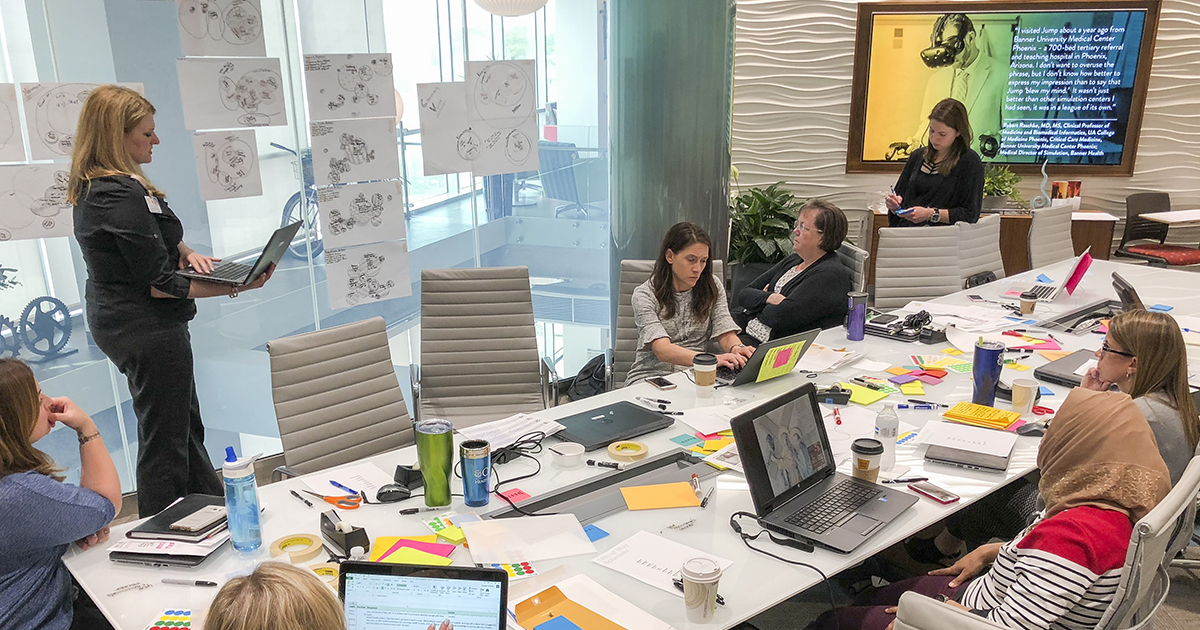
Adopting community-based innovation to transform health care
We, at OSF HealthCare, recognize a significant challenge in delivering the greatest care and love to the communities we serve: the influence of non-medical factors that affect the everyday quality of life and well-being of individuals in our communities. In fact, the Centers for Disease Control (CDC) estimates that less than half of a person’s overall health outcome is attributable to formalized medical care.
Residents of rural communities tend to be older and sicker, have higher rates of poverty, have limited access to health care and are less likely to have health insurance than urban areas. Exacerbating the problem, the individuals experiencing the greatest need for care often face the greatest obstacles to accessing the health care system. According to a 2014 report by the National Association of Community Health Centers, 62 million Americans lack adequate access to primary care.
Historically, health care systems have developed solutions to meet the needs of those considered “average patients” – or individuals meeting ideal standards for level of income, options for access, living environment and other social determinants. This practice has left marginalized populations, already lacking in resources, to either struggle to meet difficult standards or forego care altogether.
Too often, innovative health care solutions actually exacerbate these inequities rather than solve for them. In order to tackle this nationwide challenge, OSF Innovation is shifting the paradigm on how we serve and deliver care through a transformative, community-based model that focuses on overcoming the unique barriers faced by vulnerable populations.
Developing a new team
Formed in March of 2017, the Complex Solutions Innovation (CSI) team is identifying and designing solutions through a functionally different approach to reach vulnerable populations across the Ministry. With a focus on three populations (Aging in Place, More for Those with Less and Radical Access to Care), CSI constructed an infrastructure around community-based health innovation that engages community members as partners towards influencing population health.
Instrumental to this approach was the creation of a network of Innovation Outposts, or collaboratives of local community health care leaders, across the Ministry. Selected through a rigorous scoring system, OSF HealthCare medical centers in Monmouth, Peoria and Pontiac, Illinois are partnering with CSI to understand and solve for challenges specific to their communities.
Core CSI team members conducted an extensive literature review to identify 71 potential non-clinical health determinants affecting the three populations. Gathering input from multiple expert panels and compiling these topics against available internal electronic medical record (EMR) and Census data, the team used linear regression modeling to narrow the list to seven key determinants of health that have the greatest impact on the lives of those we serve:
- Built Environment: neighborhood or community infrastructure and quality of housing
- Food Insecurity: availability of nutritious and safe foods
- Health Literacy: ability to access and understand health information sources.
- Mental Health: individuals living within a Health Provider Shortage Area (HPSA)
- Social Environment: possibility for a person to become socially isolated due to circumstance
- System Integration: ability to access and navigate health care structure
- Transportation: ability to access timely transportation to a health care provider
Moving forward
In the past six months, the CSI team has brought together the various disciplines of OSF Innovation to facilitate data collection and analysis, setting the foundation for solution sourcing. The innovative nature of this collaborative team has enabled collaboration across OSF Innovation and aligned skills to truly focus on improving the quality of life of all of those we serve. The following achievements have been made through the CSI Team in the past six months:
Conduct in-depth analysis of each Outpost, developing health rankings across 14 data sources through Healthcare Analytics
Analysis of current state and available resources through Performance Improvement, utilizing a Six Sigma methodology
Qualitative survey and analysis of stakeholder sentiment facilitated through Marketing and Performance Improvement and supported by Outpost leadership
Qualitative data analysis and tabulation provided by an Innovation Partnership investment with PatientWisdom
Data synthesis with process experts in Design Thinking, leading to ‘How Might We’ solution statements
Partner with academic institutions to leverage a wide array of skill sets for breakthrough solution generation
Weaved through all of this work, the CSI Team has employed and benefited from the support of process experts and leadership from each Outpost. In the spring of 2018, the team was announced as the first corporate partner with the Discovery Partners Institute at the University of Illinois at Chicago (UIC).
The partnership will benefit the team with the innovative work of design, engineering, business, marketing and other graduate disciplines at UIC. Uniting these disciplines and methodologies is uniquely positioning OSF Innovation to bring solutions that overcome barriers leading to accessible, positive health outcomes for our communities.
As a truly innovative and cross-functional unit, our team of data specialists, process experts, clinicians, public health experts, senior marketers, strategists, black belts, human-centered designers, advanced analytic modelers and others devote untold hours towards a singular goal: to be the catalyst of change, transforming health outcomes for our most vulnerable populations.
Community-based health innovation is how we can fuel the health care revolution – to learn more about the focus areas CSI is concentrating on, visit OSFinnovation.org